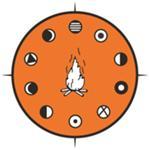Canada could look to Quebec's Paix des Braves for inspiration
WENDAKE, QC, Jan. 25, 2013 /CNW Telbec/ - AFNQL Chief Ghislain Picard welcomes the decision by Chief Theresa Spence to end the hunger strike she began on December 11, 2012. Let us remember that she took this step because of the dialogue of the deaf that has gone on for too long between the First Nations leadership and the government of Stephen Harper.
"It is now up to us to be less complaisant towards the federal government, which in turn must show that it has the openness necessary for allowing us to embark on the true path of reconciliation, the first condition of which is to possess the political will for doing so. Yet this has been seen as being too often absent, noted Chief Picard, in support of the unprecedented mobilization to which the entire country has been a witness these past several weeks."
Canada could look to the spirit of the Paix des Braves for inspiration, which could give it some examples on how to resolve disputes which too often put the authorities of the First Nations in opposition to those of other governments. "We must remember that when Quebec signed the Paix des Braves with the Cree Nation in 2002, the outcome was a result of the political will of two persons, who representing their respective nations, namely Cree Grand Chief Ted Moses and former Quebec Premier Bernard Landry," added the AFNQL Chief.
Above all, we must not forget that the years which preceded the Paix des Braves were a period of political instability, with considerable impacts on all of Quebec society. During that time, the Cree Nation found itself having to go before the courts, undoubtedly more often that it would have liked to, in order to make Quebec respect its obligations towards the Cree Nation.
As was previously pointed out by the AFNQL at the First Nations-Federal Crown meeting of January 2012, there can be no progress without a commitment at the highest level. "The ball is in the court of the Harper government. The continuing mobilization of the people shows that even its slightest actions will from now on be subject to non-stop vigilance. The government no longer has a choice. The intentions that we heard expressed on January 11th must rapidly lead to concrete actions," concluded Chief Picard.
About the AFNQL
The AFNQL is the regional organization of the 43 Chiefs of the First Nations of Quebec and Labrador. For more information, visit: www.apnql-afnql.com.
SOURCE: ASSEMBLY OF FIRST NATIONS OF QUEBEC AND LABRADOR

Nadine Gros-Louis
418-842-5020
418-564-4555
[email protected]

Share this article